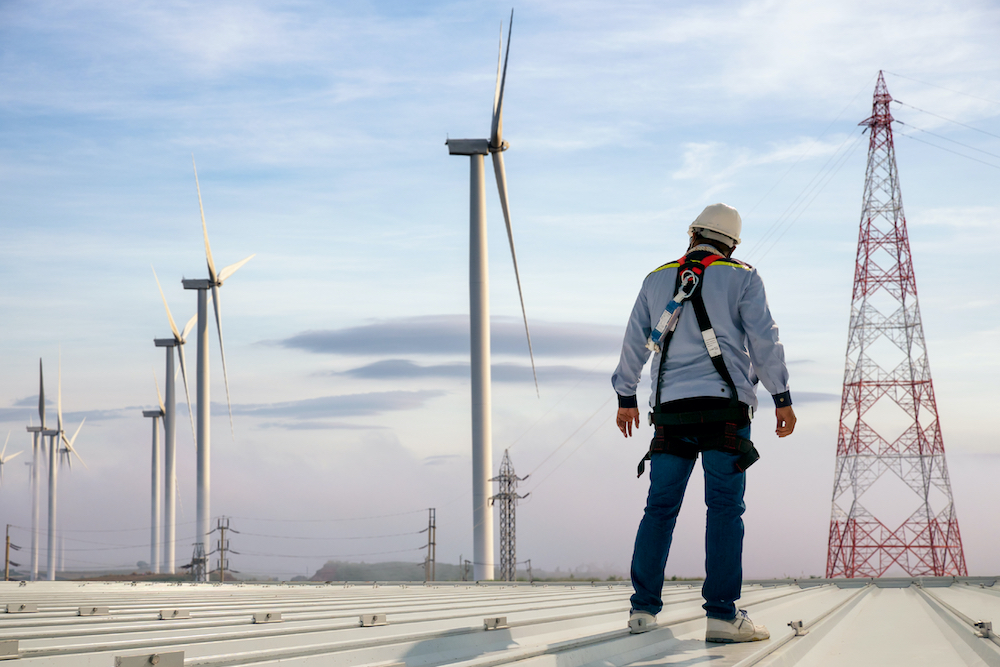The backlash to environmental, social and governance, or ESG, investing is in full swing in the U.S. In Europe, asset owners are to the contrary getting to full speed with implementing ESG across the venture ecosystem and tech ecosystem.
A responsible approach to tech investing is giving Europe an edge over Silicon Valley, as recent blowups in FTX, Deliveroo and WeWork highlight venture capital’s ESG blindspot.
Earlier this year, at the big industry conference SuperVenture, a limited partner roundtable, which included German, Finnish and Swedish state funds KfW Capital, Tesi and AP6 as well as the Mellon Foundation and UK’s Big Society Capital, addressed the topic of environmental, social and governance, or ESG, for the venture capital space.
The bottom line of the conversation was very clear: despite the recent backlash to public market ESG in the U.S., VC LPs are fully committed to integrating ESG into their VCs processes.
“Before we invest in VC funds, we assess the ESG management and integration of the fund managers, most importantly in the investment process and portfolio management but also their internal fund management and governance structure,” said Theresa Bardubitzki, the sustainability manager at KfW Capital, which has invested €1.3 billion in over 70 European VC funds since 2018. “We want to ensure that ESG aspects are an inherent part of the decision-making process.”
European state funds are especially at the forefront of enforcing both ESG compliance and real ESG integration in VC processes.
“We believe strongly that in order to drive the ESG agenda further, LPs should actively share ESG benchmark data from their portfolio to their GPs and market to support the development,” said Matias Kaila of Finland state fund Finnish Industry Investment, or Tesi, which been diligencing their managers’ ESG practices for some years. “This is why we are publishing our ESG survey results from our portfolio into public domain around the year end.”
Given the prevalence and power of state money in European VC – together with the European Investment Fund, these LPs anchor most European funds – their commitments are market-defining. How and why did we get here – and what is next?
Top down
ESG is driven by European regulation and the ecosystem is reacting positively.
Two pieces of regulation have been pushing European asset owners and investors – of any asset class – to take action on ESG.
The Sustainable Finance Disclosure Regulation, or SFDR, will be enforced from next Spring onwards, requiring investors to disclose their ESG practices. At the same time incoming E.U. taxonomies will provide further guidance, first on the E of ESG. In the U.S., the SEC is only slowly taking first steps to crack down on investment firms that mislead on ESG, too, while regulation is still further away (e.g. Goldman ESG investigation, recent ESG brief).
Industry communities like VentureESG or ESG_VC in Europe and more recently Responsible Innovation Labs in the U.S. have been helping VCs to integrate ESG across their processes. With resources, tools, awareness raising, reporting and training, these organizations are clear indications of how the ecosystem is increasingly embracing ESG.
The Principles for Responsible Investment, or PRI, is also more strongly focused on the VC space, having historically supported buyout firms and other later-stage asset managers.
“The PRI is interested in the asset class as VC is a vital part of the financial ecosystem and investment chain, funding innovation and job creation,” Peter Dunbar, the head of private equity at the PRI. VC investments also have the potential to be harmful to the broader economy and society through ESG risks such as algorithmic bias or a lack of diversity, says Dunbar.
“Governance is also often absent, and we are living through an example of where that goes wrong in FTX which has left a million creditors affected and was backed by top tier VC firms and asset owners,” says Dunbar. “VC firms are the first institutional capital into these companies and have the chance to help them scale in a responsible manner and ensure they are governed appropriately.”
The PRI just recently launched a standardized due diligence questionnaire for LPs providing guidance for VC fundraising conversations; this followed the publication of a range of practical ESG in VC case studies.
Easing adoption
ESG is not perfect and improvements will be necessary.
As with ESG for public markets, ‘aggregate confusion’ is only starting to occur in the VC space as adoption is starting to spread more widely. The lack of definition – including its translation into ESG frameworks used in investment decision making is apparent in many conversations with VCs.
Relatedly, despite the efforts of organizations like the PRI on the LP side or VentureESG on the VC side, we are far from a standardization of how ESG is integrated at the moment. Everyone is doing it their own way and while customisation is necessary – e.g., depending on company size and sector – standardization especially of reporting would make adoption less painful.
We might also be seeing a phase of regulatory overkill, especially in Europe, making ESG at least temporarily the black sheep. Many of the regulations like SFDR have been written with big, later stage, usually public market investors in mind – if they aren’t adopted for small startups, we are likely to enforce nonsensical disclosure and reporting requirements going forward, without necessarily seeing the promise (financial) benefits.
There is some work ahead of us but it also provides a massive opportunity. Niklas Zennstrom, Skype founder and Atomico founding partner, explained in a recent Wired interview how this kind of ‘responsible focus’ (in the form of ESG and climate tech) put European tech ahead of Silicon Valley, possibly for the first time.
Responsible innovation
Next steps are transparent and key responsibilities are already distributed.
Our hope is clear: with the right kind of European regulation in place and E.U. state LPs pushing the industry forward with their rigorous due diligence and adequate reporting requirements, we have a real chance to make ESG a key asset for VCs and startups going forward.
Full-blown meltdowns like what we are still observing at the crypto-exchange FTX or earlier during Deliveroo’s initial public offering and during the (failure of) the WeWork saga, can be avoided if ESG is properly integrated in VC processes.
Standard setters like the PRI or the Institutional Limited Partner Association can further help to guide the way continuously improving their ESG framework and due diligence questionnaires as we learn more about what kind of ESG works and matters.
At the moment, it looks like we are on our way to finally begin to fulfill the promise of stakeholder (tech) capitalism and responsible innovation in the next generation of companies – all driven from the top down, from asset owners to VC asset managers first.
While Europe is ahead right now we strongly hope and believe that the big name U.S. investors, including behemoth Sequoia, whom everyone is watching and who were deeply involved in FTX, will be able to adapt too; this step is necessary to truly avoid adverse selection and fully realize the opportunity.
Dr. Johannes Lenhard is co-director of VentureESG and researcher affiliate at the Minderoo Centre for Technology and Democracy at the University of Cambridge; his recent book on DEI in VC and tech ‘Better Venture’ was just published. David Kampmann is a PhD student in Sociology at the LSE and Research Assistant at Oxford’s Smith School. Dr Moriam Masha works in healthcare M&A at Houlihan Lokey; she just finished her PhD in Chemistry at Cambridge. David and Moriam are both research fellows at VentureESG.











